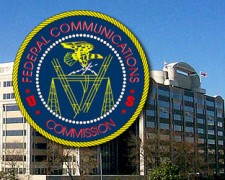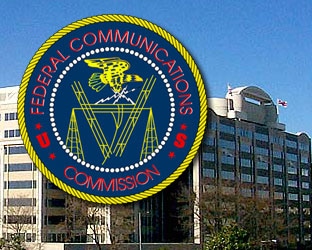 The 13 groups who co-authored a letter to the prime occupants of the FCC 8th Floor urged the Commission to dispense with its plans to institute a presumption of competition for the MVPD Industry. And it issued a list of questions the FCC must carefully consider before instituting such a presumption.
The 13 groups who co-authored a letter to the prime occupants of the FCC 8th Floor urged the Commission to dispense with its plans to institute a presumption of competition for the MVPD Industry. And it issued a list of questions the FCC must carefully consider before instituting such a presumption.
From the coalition, here are the questions:
Outstanding Questions Regarding Proposed Effective Competition Presumption Switch
1) What evidence does the Commission have that makes it certain that its proposal will not result in higher cable rates, whether because of video, broadband, or equipment charges?
2) Does the Commission have a full understanding of the impact of shifting the presumption on local franchise authorities (LFAs) and whether there have been any changes in the resources they have available to them to make effective competition showings?
3) Does the Commission’s assessment of the lack of opposition to effective competition petitions8 consider the significant barriers faced by LFAs, including, but not limited to: (i) petitions served on an LFA may not be brought to the attention of the appropriate municipal or county official with authority to determine how to respond for several weeks; (ii) the LFA may not have sufficient expertise to allow it to appropriately respond to the petition; (iii) as noted by the Intergovernmental Advisory Committee (IAC), an LFA may be required to take additional steps required by law in its area, such as “a public hearing to decide whether to oppose such petitions, which may further delay responding”; (iv) LFAs may lack resources (in terms of staff and/or capital) to effectively oppose such petitions.
4) Has the Commission evaluated “how many petitions that were actually opposed were withdrawn by []cable operators,” which commenters have asserted would be a “more telling statistic” than data about the percentage of petitions approved in the past two years?
5) Has the Commission carefully evaluated the standards applied to its review of petitions for effective competition? The IAC observes that in 2008, Time Warner Cable filed petitions to determine effective competition in 725 communities in New York and Pennsylvania. Although none were opposed, the Media Bureau questioned the data because it showed that competitors allegedly served more households than there actually were in the jurisdictions. The Media Bureau denied on its own initiative the finding of effective competition in 226 of the 725 communities. The Bureau then modified the data requirement based on its analysis of this problem. The IAC observes that many other communities may have been deemed effectively competitive based on similarly inaccurate data, and has urged the Commission to audit earlier decisions.
6) Does the inability of an LFA to regulate rates also eliminate other “important consumer protections” such as: (i) the authority to cap the price of the basic tier and equipment; (ii) the protection of a uniform rate structure; (iii) the prohibition on subscribers being required to purchase any number of programming tiers before they may order premium and pay per view offerings; and (iv) the prohibition on “negative option billing.”?
7) How might the proposed merger of AT&T and DirecTV affect competition in local communities given that “competing provider” competition requires that competitors be unaffiliated?
8) Even in situations where an LFA does not rate regulate, how much of a restraint does the mere existence – and possibility of regulation – of an LFA have on cable basic tier prices? Does it also constrain equipment costs, and limit questionable fees?
9) Has the Commission considered how the availability of high-speed broadband has altered the competitive equation? Particularly for lower and middle-income Americans that need high-speed broadband, purchasing satellite TV and high-speed broadband separately may not be a viable option. Will weakening LFAs have a negative impact on broadband buildout, especially in communities that are traditionally underserved or bypassed like tribal lands?
10) Lower-income consumers that rely disproportionately on the basic tier will likely balk at switching to satellite TV that does not have a similarly low-priced option. For example, Dish customers pay an average of $83 per month. That is significantly more than the average $23 per month paid by cable basic tier subscribers. Has the Commission done any research or analysis as to whether satellite TV is really a competitive option for these consumers?
11) As the Commission itself notes, only 30% of the nation has been deemed effectively competitive.17 Has the Commission considered why large cable operators have not yet filed petitions for effective competition in all communities they serve? Certainly, such operators have sufficient resources to submit petitions for every community. The process is not so burdensome that a company with a team of lawyers couldn’t file petitions for all their communities within a month. Perhaps cable operators are self-selecting and applying only for those communities where they know they can meet the statutory tests.





